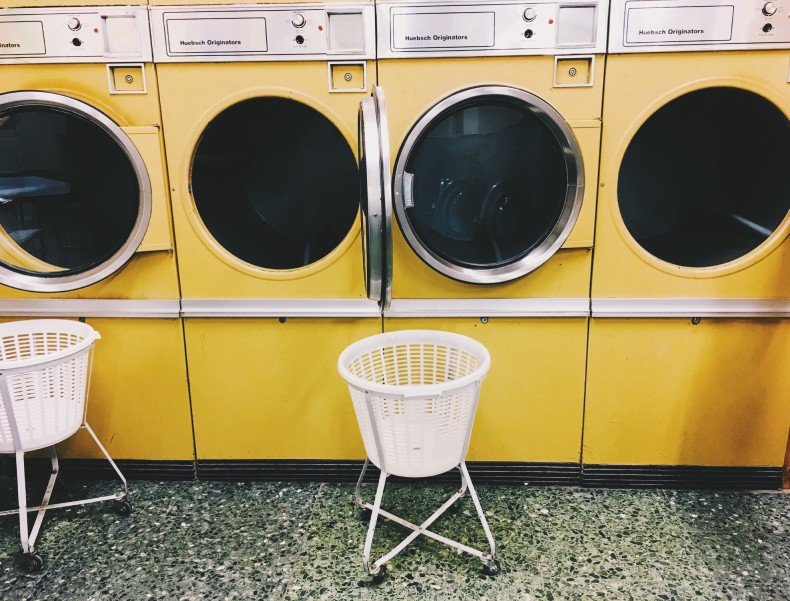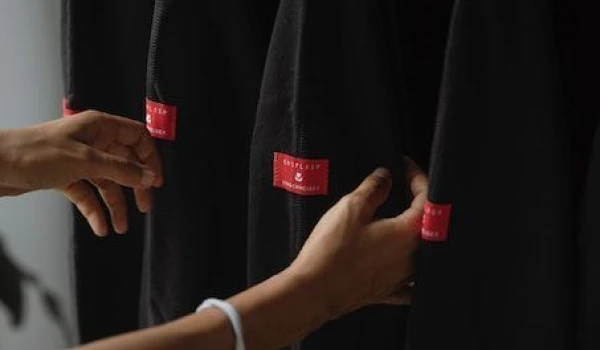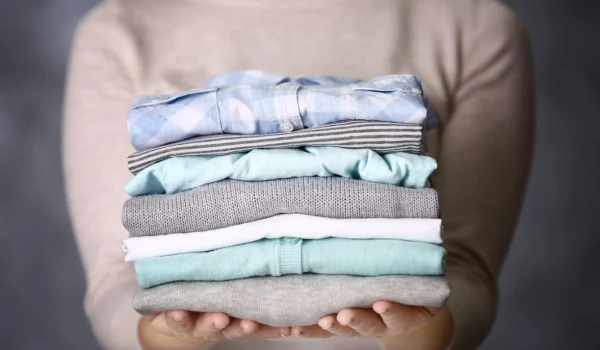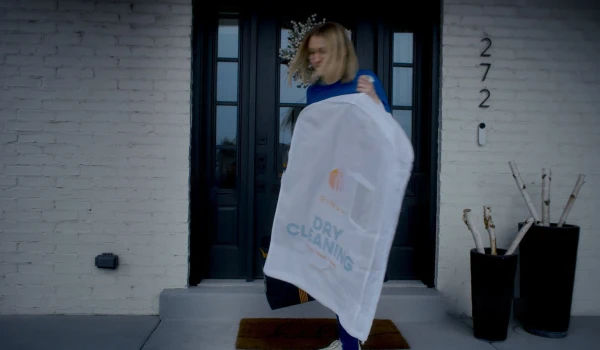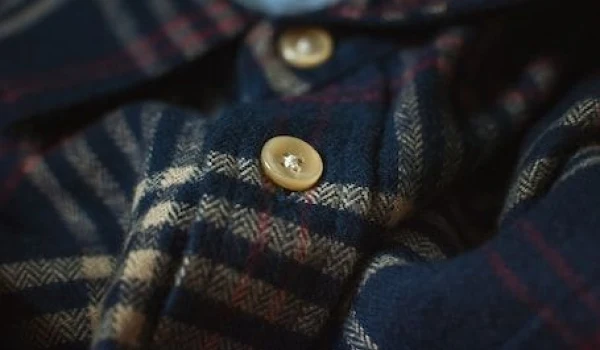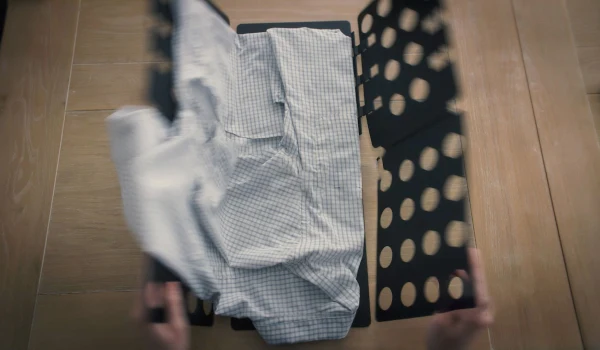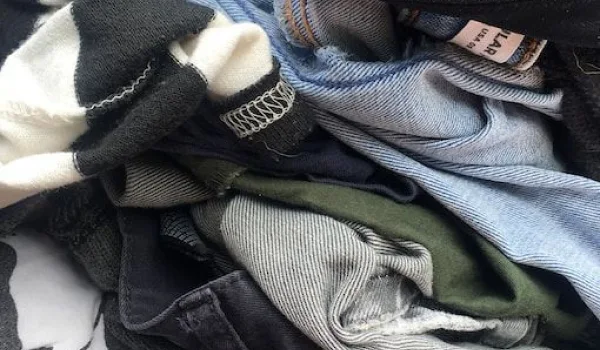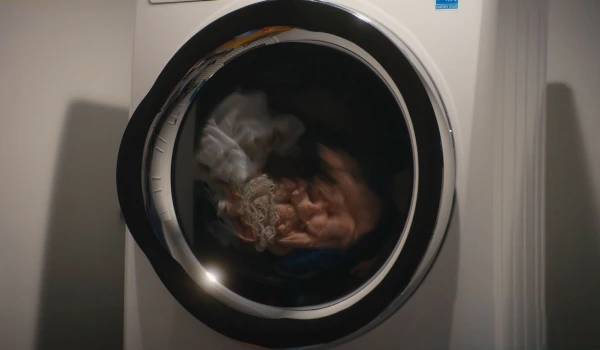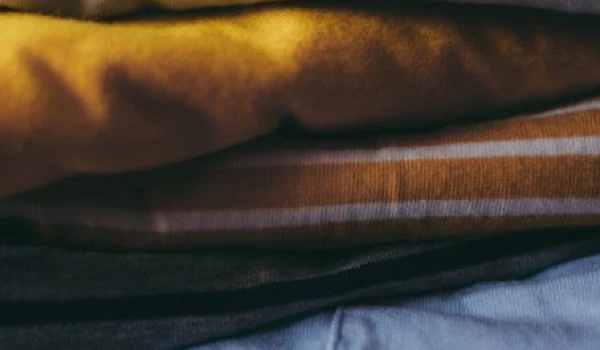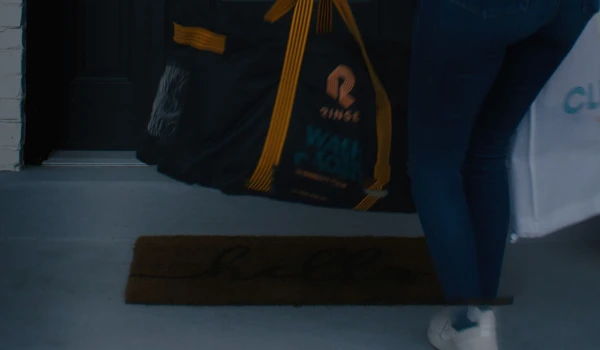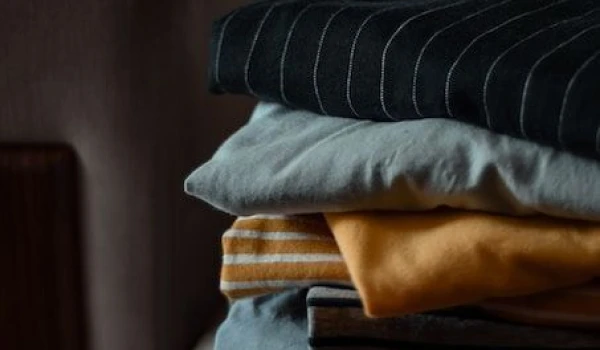What Is Fabric Softener and How Does It Work?
A fabric softener is a liquid or dry product that you add to your laundry to make it feel softer, smell nicer, and reduce static cling. Traditional fabric softeners do this by coating the fabric with a layer of chemicals that smooth down the fibers. The lubrication also reduces friction and makes clothes feel softer.
A fabric conditioner is also often added in the rinse cycle of a wash. It helps combat the fading and piling of garments. Plus, it adds some shine to your clothes and prevents stretching.
Here's how to use a fabric softener:
- Add laundry detergent and let it dissolve for a minute.
-
Add your clothes and start the wash cycle.
-
When you reach the rinse cycle, add fabric softener to the dispenser or dilute it with water and add it to the washing machine tub.
Note that some washers have a fabric softener dispenser. If this is the case, you can fill it when you are adding your detergent in step 1.
If you use a wool dryer ball or dryer sheets, put a new dryer sheet on and run a dry cycle. Or you can add 2 to 3 dryer balls in the dryer.
Are There Any Cons of Using Fabric Softener?
Yes, there are quite a few cons of using fabric softener. You should be familiar with them before you add a fabric softener to your grocery list.
First, do not use fabric softeners for moisture-wicking fabrics, such as sportswear and towels. Fabric softeners break down the fibers in these fabrics and leave a waxy buildup that makes the material less absorbent. They can also reduce a garment's breathability by clogging the pores in the fabric.
A fabric softener may also be an irritant for sensitive skin. It can cause contact dermatitis, which is an itchy red rash that appears on the skin where a fabric softener has been in contact. If you have sensitive skin, it's best to use a scent-free formula.
Some experts also note that fabric softeners affect your clothes' texture with extended use. They tend to make clothes more "flat" and less fluffy over time.
Besides damaging your clothes, glutaraldehyde in fabric softeners may cause skin irritation and respiratory problems. Another common ingredient in fabric softeners is hexylene glycol, which is associated with skin, respiratory, and eye irritation. They also contain quaternary ammonium compounds that trigger asthma and could harm the reproductive system if the following are listed on the label:
-
Distearyldimonium chloride
-
Compounds ending in "ammonium chloride"
-
Biodegradable fabric softening agent
-
Cationic surfactant
Fabric softeners also harm the environment since they're usually made from petroleum products, in addition to containing synthetic musks like galaxolide, which is extremely toxic to aquatic life.

6 Natural Fabric Softener Alternatives
Since chemical fabric softeners pose multiple risks but the desire for soft clothes remains, many people are switching to natural fabric softener alternatives. These alternatives use natural ingredients, making them eco-friendly. Some of them are also plant-based, while others are organic. Here are some options:
Vinegar
If you don't want to run to the store to get ingredients for a DIY fabric softener, you can just head over to the kitchen and take out the bottle of distilled white vinegar. It's not only non-toxic but also inexpensive.
Here's how to use it:
-
Put half a cup of white vinegar in the fabric softener compartment or during the rinse cycle.
-
Alternatively, you can wait until drying time and add vinegar to your wool dryer ball.
Note vinegar may add an unpleasant smell to your laundry. However, once the clothes dry, the smell goes away.
Baking Soda
Of the unscented alternatives to fabric softener, baking soda stands out. It's also a deodorizer, which means it will help eliminate any unpleasant smells in your laundry.
Simply put a cup of baking soda in the washer during the rinse cycle. Alternatively, you can add baking soda when you start the regular cycle. Both ways work fine.
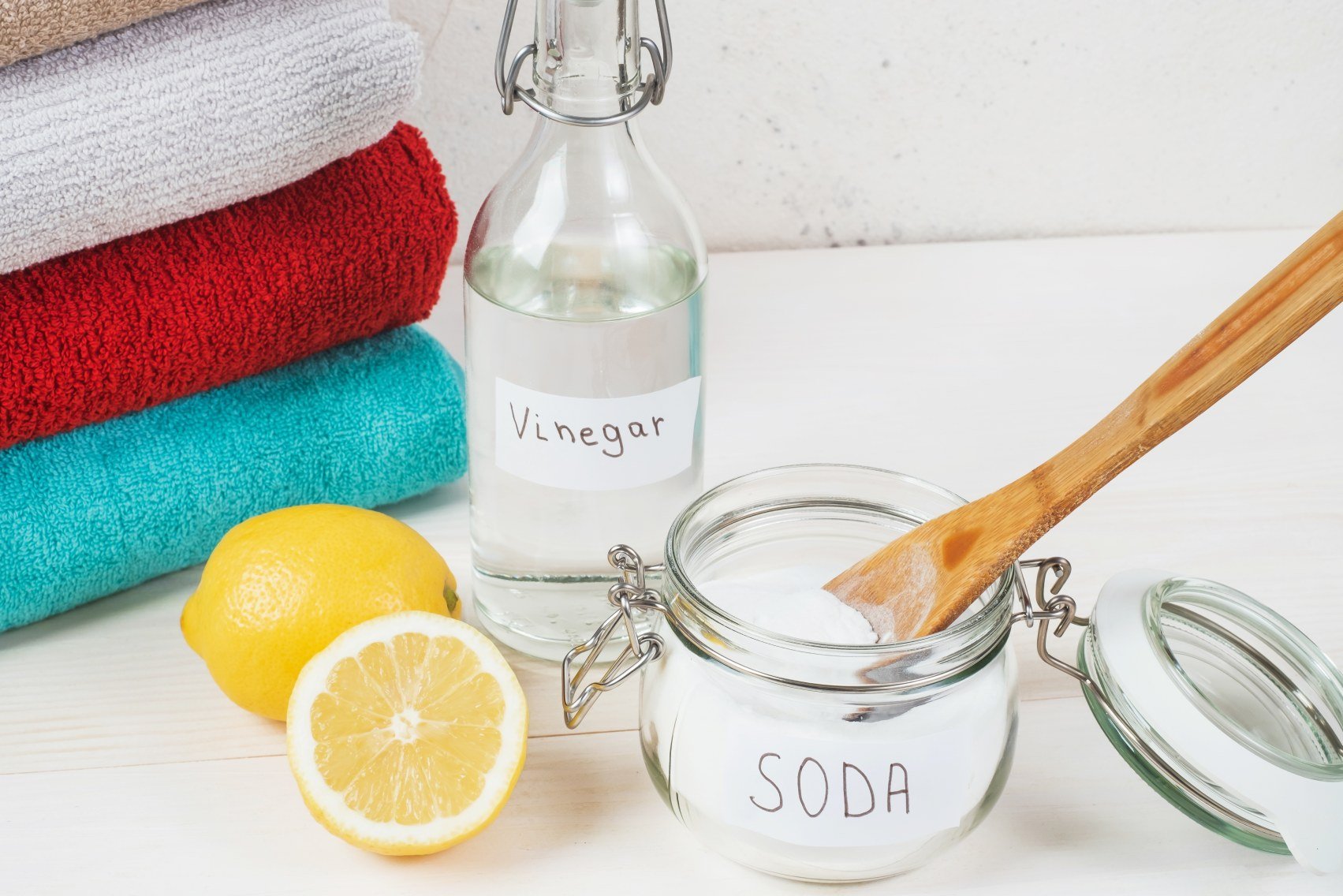
Essential Oils
Essential oils alone won't do the job – you'll need vinegar too. Here's how to make a non-toxic fabric softener with these two ingredients:
-
Take an empty bottle or container and clean it out thoroughly. Add 2 cups of white vinegar to the bottle.
-
Put 20-30 drops of an essential oil of your choice. Lavender, lemon, bergamot, and peppermint are great options.
-
Close the bottle.
-
Shake it well.
To get the best softening effect, put about a quarter cup of this mixture during the rinse cycle.
Hair Conditioner
Just a heads-up: this one is scented. But it's one of those products that you probably already have at home, so why not repurpose it?
-
Clean an empty bottle and fill it with a cup of hair conditioner.
-
Dilute the hair conditioner with 3 to 4 cups of distilled water.
-
Shake well to mix both ingredients.
-
Add half a cup of this solution to the rinse cycle.
Hair conditioner will not only make your clothes smell good, but it will also make them softer and more comfortable to wear.
Wool Dryer Balls
Wool dryer balls could be considered the most non-toxic fabric softener. They are suitable for towels too. Since they do not contain fragrance or chemical ingredients, they're perfect for people with sensitive skin.
It's pretty simple to use wool dryer balls:
-
Toss three balls in the dryer with your laundry.
-
Dry on a regular cycle.
Wool dryer balls will help reduce static and wrinkles while also making your clothes softer. Plus, they can be reused repeatedly, making them a more eco-friendly option.
Check wool dryer balls for reusability when you're out shopping for them. Some can be used for up to 1,000 loads – farewell, single-use dryer sheets.
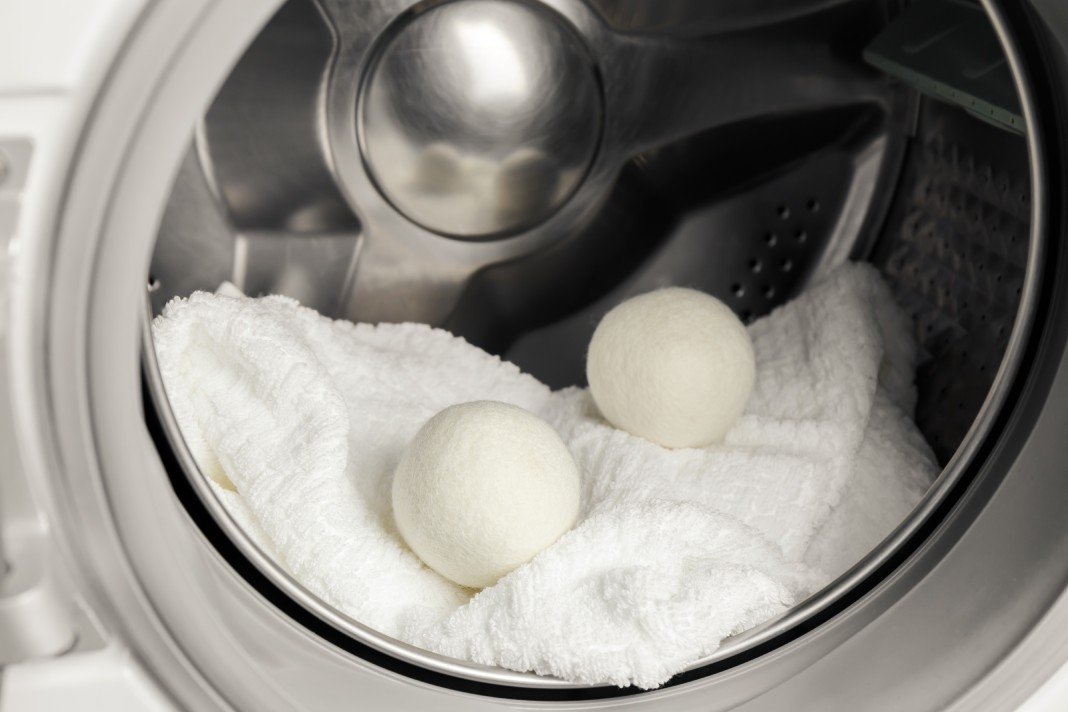
Vegetable Glycerin
Vegetable glycerin isn't just for homemade soap-making or your skincare routine anymore. It's also a great natural fabric softener. Here's how to use it:
-
Add half a cup of vegetable glycerin to a gallon of water.
-
Add a few drops of your favorite essential oil.
-
Put half a cup of this solution into the washing machine during the rinse cycle. Or, you can put it in the fabric softener dispenser in your washer.
The US Food and Drug Administration considers vegetable glycerin as GRAS (generally recognized as safe). You can rest easy knowing it won't harm your skin or clothes. Since it's also water soluble, it won't leave any residue on your laundry, and it washes off easily.
A Better Eco-Friendly Laundry Care Solution
We're living in a time where sustainable practices have become the need of the hour. If we want to preserve the environment for future generations, it's important to make small changes in our daily routines.
One of these changes can be using eco-friendly laundry care solutions. As a professional laundry and dry cleaning service, Rinse is committed to using non-toxic and eco-friendly products. At Rinse, we only work with dry cleaning partners with environment-friendly and perchloroethylene-free (a carcinogen) methods.
We also use high-efficiency washing machines that consume less water than the washer at your home. As a result, we save millions of gallons of water each year.
Schedule your first laundry pickup today and experience the difference in using an eco-friendly laundry service.
Image Source: Environmental Working Group
